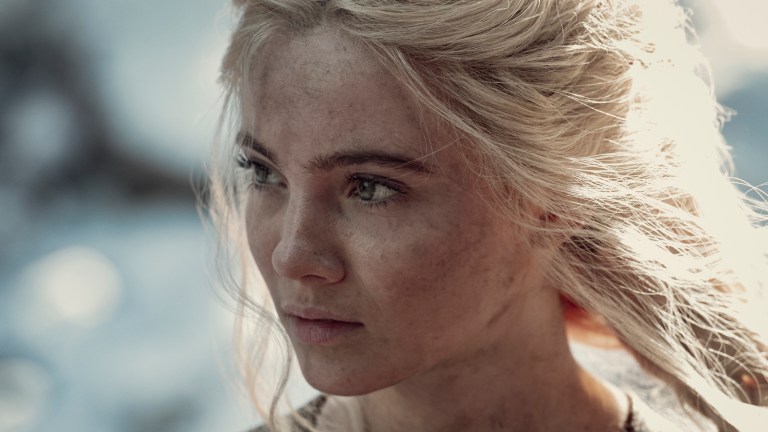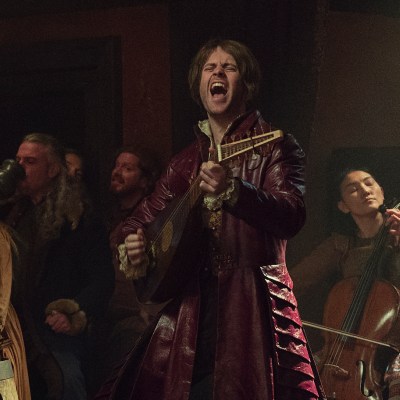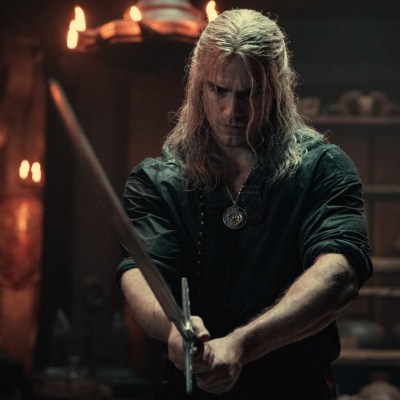The Witcher Season 2 Ending Explained
The Witcher season 2 finale set up a massive power struggle that will have ramifications for the coming story, but what does it all mean?

This article contains major spoilers for The Witcher season 2.
Far from resolving its many conflicts, The Witcher season 2 finale merely focused more intensely on the mystery of Ciri’s power and brought powers together to either find her or protect her. Instead of a traditional victorious ending, the final moments saw the banishment of a troublesome demon and the hardened resolve of the fractured family that surrounds the former princess of Cintra. Plus, of course, there were several surprising reveals that raised more questions than they answered.
For example, we never did find out who was behind Rience the fire mage’s attempts to find and capture Ciri. Initially, his release from prison added another player to the game besides Nilfgaard and gave us some cool fight scenes. But now that there are many invested parties including the elves, the Brotherhood, Redania, and others, the continuing mystery of the benefactor of “fire fucker” and the now-faceless woman Lydia adds intrigue to the finale. Yes, we know you know, book readers, but The Witcher has chosen to hold this truth until season 3.
Even veterans of The Witcher lore, however, wouldn’t recognize the motives of Voleth Meir, the Deathless Mother, who manipulated Francesca of the elves, Fringilla of Nilfgaard, and Yennefer of Vengerberg into bad decisions by playing on their deepest despair. The ill-advised elven alliance hinged on the birth of a new elven child and fed Fringilla’s need for friendship and acceptance, and Yennefer’s desire to regain her magic forced her to guide Ciri back to the broken monolith outside Cintra.
Even after Yennefer realized her mistake and sacrificed herself to save Ciri, it became clear that it wasn’t a vessel Voleth Meir wanted; it was a means to return to her home dimension. The monoliths were discovered to have been remnants of the long-ago conjunction of the spheres, and Ciri’s vast power could allow new connections between those spheres. However, crossing between worlds also brought Ciri’s existence to the attention of the Wraiths of Mörhogg, also known as the Wild Hunt (a recognizable antagonist from the games), who will now join the many parties interested in accessing Ciri’s power.
That power, as we learned earlier in The Witcher season 2, comes from her elder blood, a special elven ancestry that taps directly into Chaos. Istredd mentions this fact to Francesca in the finale by calling Ciri the Hen Ichaer, the subject of Ithlinne’s prophecy, which we saw Ciri reading earlier in the season and which she recited in altered voice in the season 1 finale. The prophecy speaks of the end times and a devastating war, which is clearly brewing now that Francesca has killed the infants of Redania, the kingdom Nilfgaard framed for the death of her child.
Not that Redania is totally blameless. The master spy Dijkstra clearly seeks more power for his king by finding Ciri as a marriage prospect so that Cintra can be rightfully absorbed. Dijkstra provokes several parties with his agents in The Witcher season 2 including the elves and the Brotherhood of mages (and apparently Jaskier somehow), but the biggest ongoing mystery was the nature of his owl go-between. Readers will recognize the sorceress Philippa, but those unfamiliar with the polymorph will go into the hiatus wondering what role she will play in the continuing conflict.
The Witcher has kept even the most savvy readers and gamers on their toes, however, by playing with the chronology of its source material, and nowhere was this more evident than in the revelation of the identity of the White Flame of Nilfgaard. Geralt was right to wonder how they knew about Ciri’s power before everyone else when they attacked Cintra in season 1, and when we see that the southern leader is actually the presumed dead Duny, father of Cirilla from whom Geralt claimed the Law of Surprise, the story took on a whole new perspective.
Geralt puts it best when he says, “The demon; the Wild Hunt — she’s marked for something, and it doesn’t end there. If mages and royals find out she’s still alive and what she’s capable of, they won’t stop coming for her.” Even friends like Tissaia now have a bounty out on her and anyone who protects her! And so we prepare for an all-out pursuit of Ciri in The Witcher’s future, with Yennefer and Geralt frantically preparing her as quickly as they can.
Because “What is destined cannot be avoided,” and, as Yennefer tells Geralt, nor should it be.


